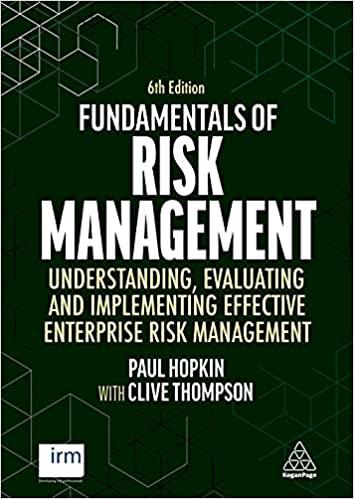Question
ECN 300 Money and Banking-DQs 1. What are expectations, and why are they important, in macroeconomic models? What does it mean to have rational expectations?
ECN 300 Money and Banking-DQs
1. What are expectations, and why are they important, in macroeconomic models? What does it mean to have rational expectations? What would you think about a macroeconomic model that assumed that people's expectations of inflation were constant, even though the inflation rate changed over time?
2. Why are some economists doubtful of the value of RBC models? What is the difference between homogeneous-agent models and heterogeneous-agent models? How does a univariate time-series model differ from a VAR model? What are the problems a researcher encounters in trying to use a VAR model to investigate the effects of monetary policy? What type of VAR model can be used to solve these problems?
3. Why does an oil price shock cause the business cycles of different countries to be synchronized? Why did the business cycles of major industrial countries become unsynchronized during the 1990s? What mechanisms lead to the international transmission of economic shocks? Explain the basic means by which the transmission occurs.
4. What is the difference between the law of one price and purchasing-power parity? How does absolute purchasing-power parity differ from relative purchasing-power parity? What is the difference between the nominal exchange rate and the real exchange rate? Why are they different?
[You are requested to CITE your sources and put REFERENCES for the relevant resources used while answering]
Step by Step Solution
There are 3 Steps involved in it
Step: 1

Get Instant Access to Expert-Tailored Solutions
See step-by-step solutions with expert insights and AI powered tools for academic success
Step: 2

Step: 3

Ace Your Homework with AI
Get the answers you need in no time with our AI-driven, step-by-step assistance
Get Started


